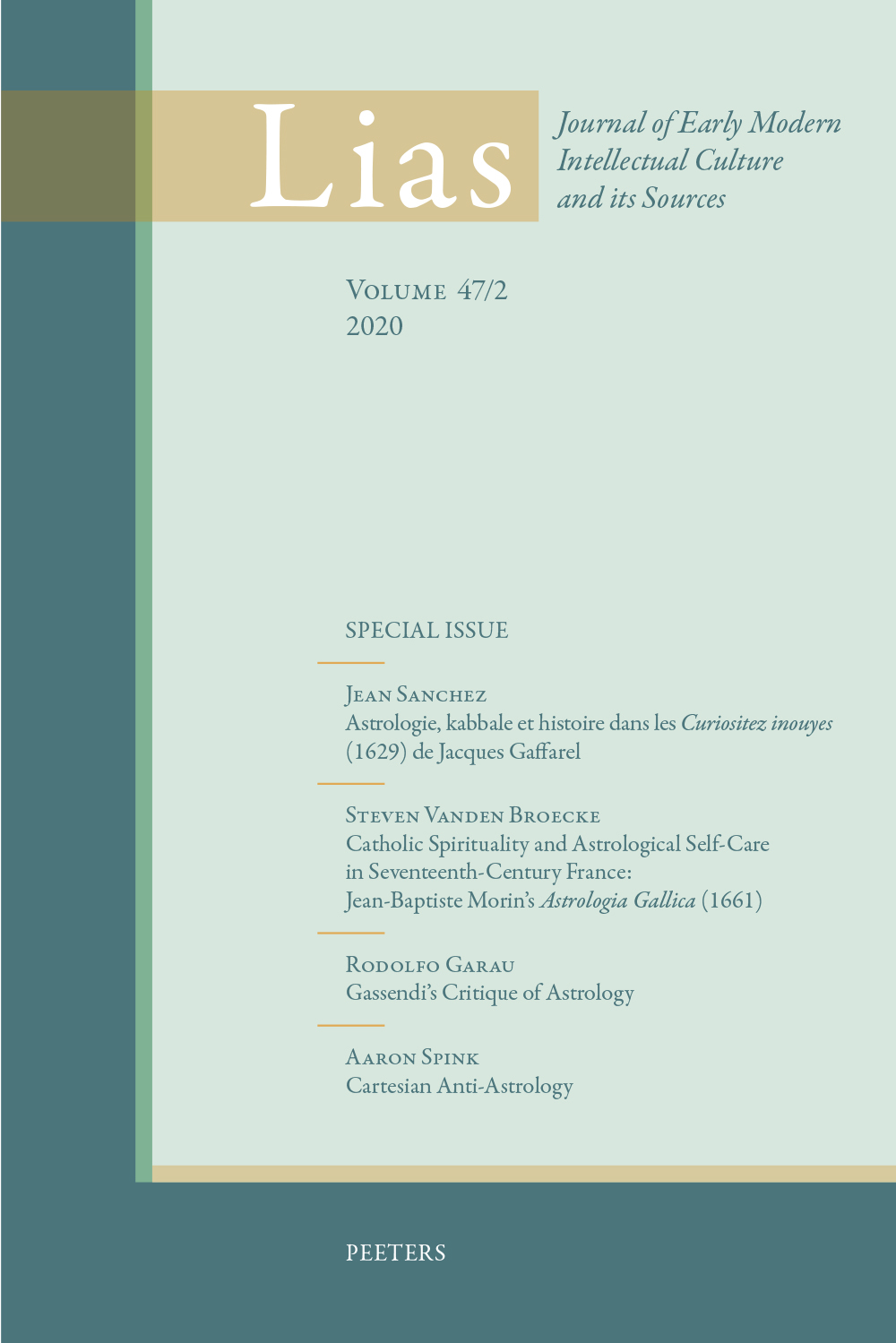next article in this issue  |

|
Document Details : Title: Europa Exultans Subtitle: The Personification of Europe as a Representation of the Habsburg Universal Monarchy in Johann Lauterbach's Pastoral Poem Europa Eidyllion (1558) Author(s): WALSER-BÜRGLER, Isabella Journal: Lias Volume: 45 Issue: 1 Date: 2018 Pages: 1-43 DOI: 10.2143/LIAS.45.1.3285539 Abstract : The history, meaning, and concepts of Europe in the Early Modern Period can well be retraced in a young but promising field: Neo-Latin studies. An interesting example among hundreds, probably even thousands of yet neglected and unrevealed discursive Latin texts on Europe sets the pastoral poem Europa Eidyllion (1558), written by the Bohemian-German poet laureate Johann Lauterbach and dedicated to the newly enthroned Emperor Ferdinand I. As a source of political dimension, the poem propagates the concept of Europe as a monarchia universalis under the leadership of the House of Habsburg. For this purpose, the personification of Europe performs in a pastoral context, singing of Ferdinand’s glory, introducing herself as his bride, and praising the eventual dawn of the Golden Age that is to come upon her due to his rule. Apart from reusing Vergil’s famous fourth eclogue and making it a tool to discuss the contemporary and future state of Europe, the poem echoes the wide-spread Europa-Imago-depictions of Johannes Putsch or Sebastian Münster on a literary level, while at the same time representing an early example of continental personification in European literature in general. The article features an introduction to the poem and its significance for the early modern discourse on Europe, as well as a first modern edition of the text with the Latin transcription and an English translation. |
|
